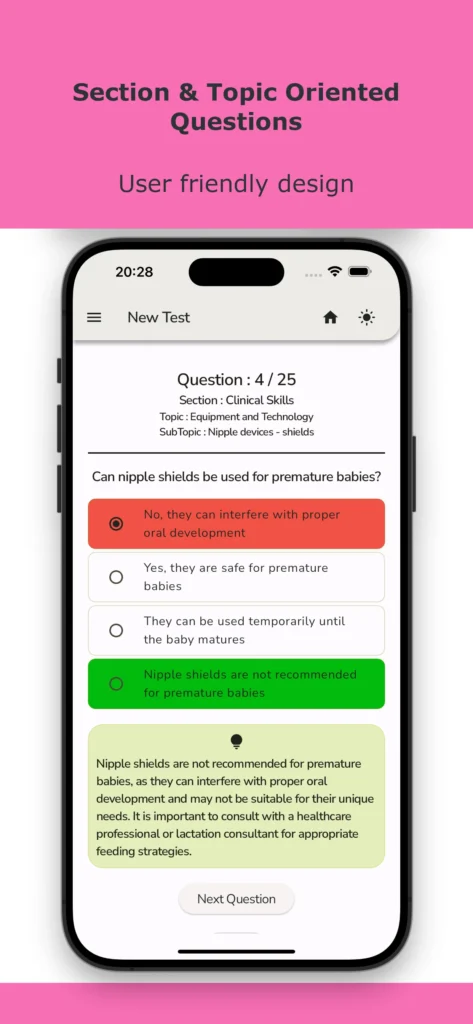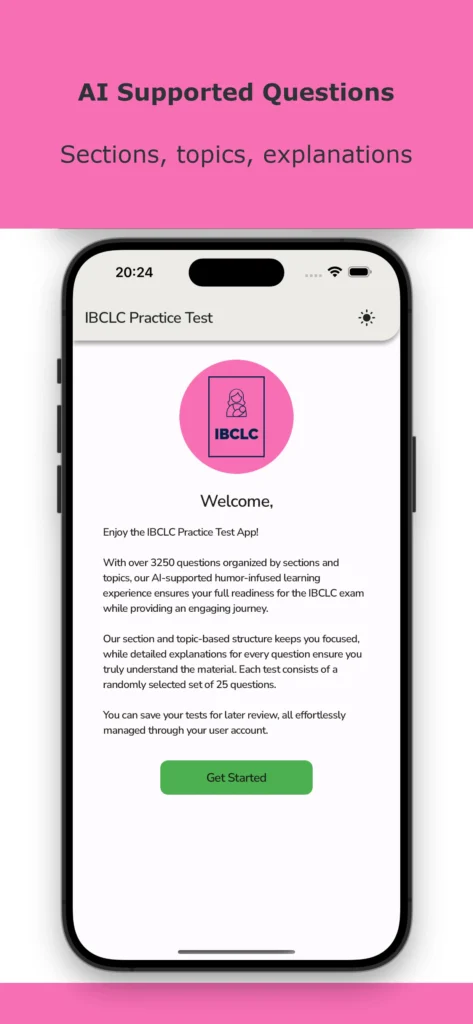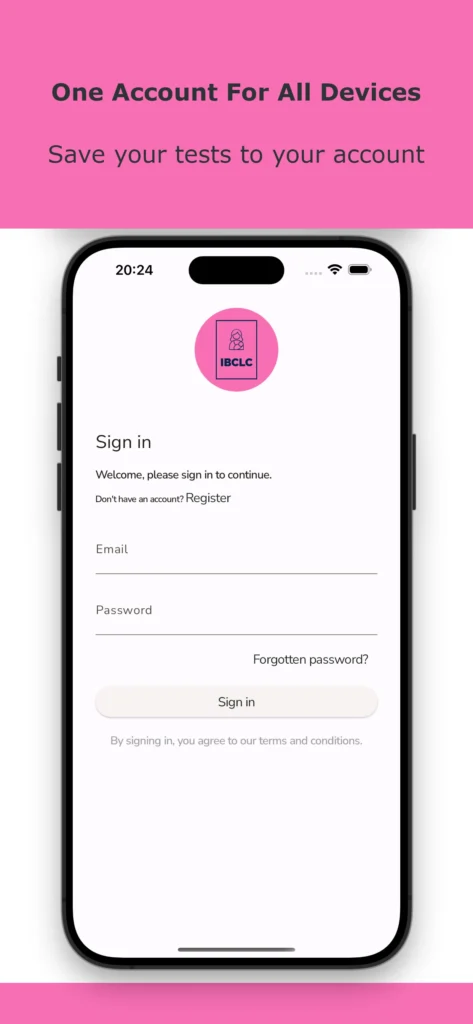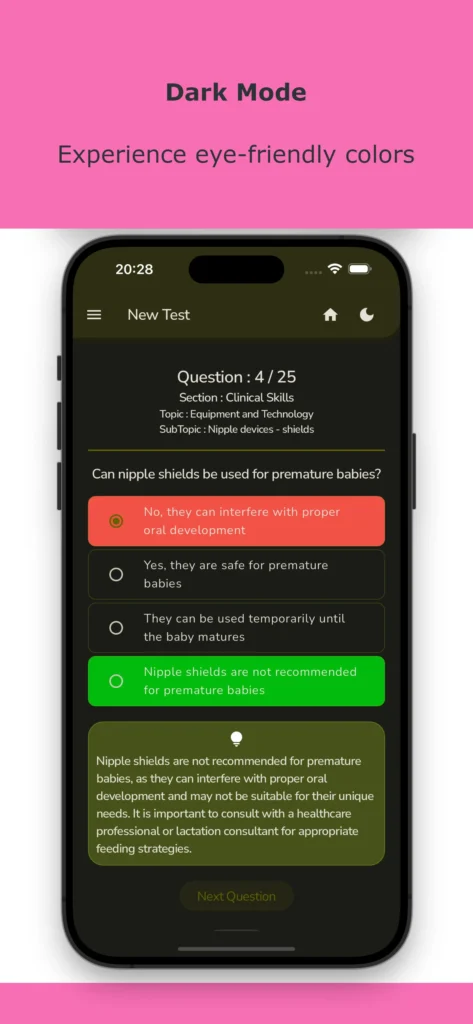Introduction
Welcome to our guide on how to become an IBCLC in the USA! If you are passionate about helping mothers and babies with breastfeeding, becoming an International Board Certified Lactation Consultant (IBCLC) is a rewarding career choice. In this article, we will provide you with all the information you need to know about the process of becoming an IBCLC in the USA.
As an IBCLC, you will play a crucial role in supporting and assisting families in their breastfeeding journey. You will provide evidence-based information, counseling, and hands-on support to help mothers establish and maintain breastfeeding. Your expertise will be invaluable in addressing common breastfeeding challenges and ensuring the well-being of both mother and baby.
Becoming an IBCLC requires a combination of education, clinical experience, and passing a comprehensive exam. It is a rigorous process, but the knowledge and skills you will gain along the way will equip you to make a significant impact on the lives of mothers and babies.
Steps to Becoming an IBCLC
Step 1: Meet the Eligibility Requirements
In order to become an IBCLC (International Board Certified Lactation Consultant) in the USA, you must first meet the eligibility requirements set by the International Board of Lactation Consultant Examiners (IBLCE). These requirements include:
- Completing specific health science education
- Completing specific lactation education
- Completing a minimum number of hours of supervised clinical experience
- Obtaining a certain number of hours of breastfeeding support experience
- Completing specific courses in human lactation and breastfeeding
It is important to carefully review the eligibility requirements to ensure that you meet all the necessary criteria before proceeding to the next step.
Step 2: Complete the Required Education
Once you have confirmed that you meet the eligibility requirements, the next step is to complete the required education. This typically involves completing a lactation consultant training program that is recognized by the IBLCE. These programs provide in-depth knowledge and skills in lactation and breastfeeding, covering topics such as anatomy and physiology of lactation, infant feeding practices, and counseling techniques.
It is important to choose a reputable and accredited training program to ensure that you receive quality education that aligns with the standards set by the IBLCE.
Step 3: Gain Clinical Experience
After completing the required education, you will need to gain clinical experience in lactation consulting. This involves working under the supervision of an experienced IBCLC or other healthcare professionals who specialize in lactation support. The IBLCE requires a minimum number of hours of supervised clinical experience, which allows you to apply the knowledge and skills you have learned in a practical setting.
During your clinical experience, you will have the opportunity to work with breastfeeding mothers and infants, provide support and guidance, and develop your clinical skills in assessing and managing breastfeeding challenges.
Step 4: Obtain Breastfeeding Support Experience
In addition to clinical experience, you will also need to obtain a certain number of hours of breastfeeding support experience. This can be achieved by volunteering or working in settings that provide breastfeeding support, such as hospitals, clinics, or community organizations. This experience allows you to gain a deeper understanding of the challenges and needs of breastfeeding mothers and infants, and further develop your skills in providing effective support.
Step 5: Pass the IBCLC Exam
Once you have completed the required education and gained the necessary clinical and breastfeeding support experience, you will be eligible to take the IBCLC exam. This exam is administered by the IBLCE and assesses your knowledge and competence in lactation consulting. It covers various topics related to lactation and breastfeeding, including anatomy and physiology, infant feeding practices, counseling skills, and ethical considerations.
Preparing for the exam may involve self-study, attending review courses, and practicing with sample questions and case studies. It is important to allocate sufficient time and resources to adequately prepare for the exam.
Step 6: Maintain Certification
Once you have successfully passed the IBCLC exam, you will become a certified IBCLC. However, it is important to note that certification is not a one-time achievement. To maintain your certification, you will need to fulfill certain requirements, such as continuing education and recertification exams, on an ongoing basis. This ensures that you stay updated with the latest research and best practices in lactation consulting.
By following these steps and meeting the requirements set by the IBLCE, you can become an IBCLC in the USA and make a meaningful impact in supporting breastfeeding mothers and infants.
IBCLC Certification Examination
What is the IBCLC Certification Examination?
The IBCLC Certification Examination is a comprehensive test that assesses the knowledge and skills of individuals seeking to become International Board Certified Lactation Consultants (IBCLCs) in the USA. This examination is administered by the International Board of Lactation Consultant Examiners (IBLCE), the global authority for lactation consultant certification.
The IBCLC Certification Examination is designed to evaluate a candidate’s understanding of lactation and breastfeeding management, as well as their ability to provide evidence-based care to breastfeeding families. It covers a wide range of topics, including anatomy and physiology of lactation, infant feeding and nutrition, breastfeeding support and counseling, and professional ethics and standards.
The examination consists of multiple-choice questions that test the candidate’s knowledge and understanding of lactation and breastfeeding. It also includes clinical case studies that assess the candidate’s ability to apply their knowledge to real-life scenarios.
Preparing for the IBCLC Certification Examination
Preparing for the IBCLC Certification Examination requires a combination of studying and practical experience. It is recommended that candidates have a minimum of 1,000 hours of lactation-specific clinical practice before taking the examination.
There are several resources available to help candidates prepare for the examination. These include textbooks, online courses, study guides, and practice exams. It is important to choose resources that are up-to-date and aligned with the latest evidence-based practices in lactation and breastfeeding.
It is also beneficial to participate in study groups or seek mentorship from experienced IBCLCs. This can provide valuable insights and support during the preparation process.
Taking the IBCLC Certification Examination
The IBCLC Certification Examination is offered twice a year, in July and November. Candidates must apply to take the examination and meet the eligibility requirements set by the IBLCE.
On the day of the examination, candidates should arrive early and bring the necessary identification documents. The examination is typically conducted in a proctored setting, ensuring the integrity of the test.
During the examination, candidates should read each question carefully and consider all possible options before selecting their answer. Time management is crucial, as the examination is timed and candidates must complete all sections within the allocated time.
Passing the IBCLC Certification Examination
To pass the IBCLC Certification Examination, candidates must achieve a minimum passing score set by the IBLCE. The passing score is determined through a standardized process that ensures fairness and consistency.
Upon passing the examination, candidates are awarded the IBCLC credential, which signifies their expertise in lactation and breastfeeding management. This credential is recognized internationally and demonstrates a high level of competence in the field.
It is important to note that the IBCLC Certification Examination is a rigorous assessment of knowledge and skills. Candidates should dedicate sufficient time and effort to prepare effectively and increase their chances of success.
Benefits of Being an IBCLC
1. Career Opportunities
Becoming an IBCLC opens up a world of career opportunities in the field of lactation consulting. As an IBCLC, you can work in various settings such as hospitals, clinics, private practices, and community organizations. You can also choose to start your own lactation consulting business, providing support and guidance to breastfeeding mothers and their families.
2. Job Security
The demand for IBCLCs is on the rise, and there is a growing recognition of the importance of breastfeeding and lactation support. This means that as an IBCLC, you can enjoy job security and stability in your career. With the increasing awareness of the benefits of breastfeeding, more and more families are seeking the expertise of IBCLCs to help them navigate their breastfeeding journey.
3. Making a Difference
As an IBCLC, you have the opportunity to make a real difference in the lives of mothers and babies. Breastfeeding is not always easy, and many mothers face challenges and need support to establish and maintain breastfeeding. By becoming an IBCLC, you can provide the knowledge, guidance, and support that can help mothers overcome these challenges and have a successful breastfeeding experience.
4. Personal Fulfillment
Being an IBCLC can be incredibly rewarding on a personal level. Knowing that you have played a role in helping a mother and baby establish a strong breastfeeding relationship can bring a sense of fulfillment and satisfaction. The bond between a mother and baby is precious, and as an IBCLC, you have the privilege of supporting and nurturing that bond.
5. Professional Development
Becoming an IBCLC requires a significant amount of education, training, and experience. As you work towards becoming an IBCLC, you will gain valuable knowledge and skills in lactation and breastfeeding. This continuous learning and professional development can enhance your expertise and credibility in the field. It also provides opportunities for networking and collaboration with other healthcare professionals.
6. Recognition and Credibility
Being an IBCLC carries a level of recognition and credibility in the field of lactation consulting. The IBCLC credential is internationally recognized and demonstrates your commitment to the highest standards of lactation care. This recognition can open doors to collaborations, research opportunities, and speaking engagements, further establishing your expertise and authority in the field.
Career Opportunities
Exploring Career Opportunities as an IBCLC in the USA
If you are passionate about helping mothers and babies and have a strong interest in lactation, becoming an International Board Certified Lactation Consultant (IBCLC) can open up a world of rewarding career opportunities. As an IBCLC, you will play a crucial role in supporting and promoting breastfeeding, providing valuable guidance and support to new mothers.
With the increasing recognition of the importance of breastfeeding, the demand for IBCLCs is on the rise. Let’s explore some of the exciting career paths you can pursue as an IBCLC in the USA.
Hospital Settings
Many IBCLCs find employment in hospitals and birthing centers, where they work closely with new mothers and their babies. In these settings, you will provide one-on-one lactation consultations, assist with breastfeeding challenges, and educate new mothers on proper breastfeeding techniques. Your expertise as an IBCLC will be invaluable in helping mothers establish a successful breastfeeding relationship with their babies.
Private Practice
Another career option for IBCLCs is to establish a private lactation consulting practice. This allows you to work independently and provide personalized care to breastfeeding mothers in their homes or in your own office. As a private practice IBCLC, you will have the flexibility to set your own schedule and tailor your services to meet the unique needs of each client.
Community Health Centers
Community health centers often employ IBCLCs to provide lactation support to underserved populations. In these settings, you will work with diverse communities, helping mothers overcome breastfeeding challenges and promoting breastfeeding as a vital component of infant health and well-being. Your role as an IBCLC in a community health center can make a significant impact on the health outcomes of mothers and babies.
Research and Education
If you have a passion for research and education, pursuing a career as an IBCLC in academia or research institutions may be the right path for you. In these roles, you will contribute to the advancement of lactation science, conduct research studies, and educate future generations of lactation consultants. Your expertise as an IBCLC will be instrumental in shaping the field of lactation and improving breastfeeding outcomes.
Non-Profit Organizations
Non-profit organizations focused on maternal and child health often employ IBCLCs to provide lactation support and education to vulnerable populations. Working for a non-profit organization allows you to make a difference in the lives of underserved communities, advocating for breastfeeding and providing essential support to mothers who may face additional challenges.
These are just a few examples of the career opportunities available to IBCLCs in the USA. The demand for lactation consultants continues to grow, and as an IBCLC, you will have the opportunity to make a meaningful impact on the lives of mothers and babies. Whether you choose to work in a hospital, start your own practice, or pursue a career in research or education, becoming an IBCLC opens doors to a fulfilling and rewarding career.
Conclusion
In conclusion, becoming an IBCLC in the USA is a rewarding and fulfilling career path for those passionate about supporting breastfeeding mothers and infants. It requires a combination of education, clinical experience, and passing the IBCLC exam. By following the steps outlined in this guide, you can embark on your journey to becoming a certified lactation consultant. Remember to stay updated on the latest research and best practices in lactation support, as this field is constantly evolving. With dedication and commitment, you can make a positive impact on the lives of breastfeeding families and contribute to the promotion of maternal and infant health in the USA.








